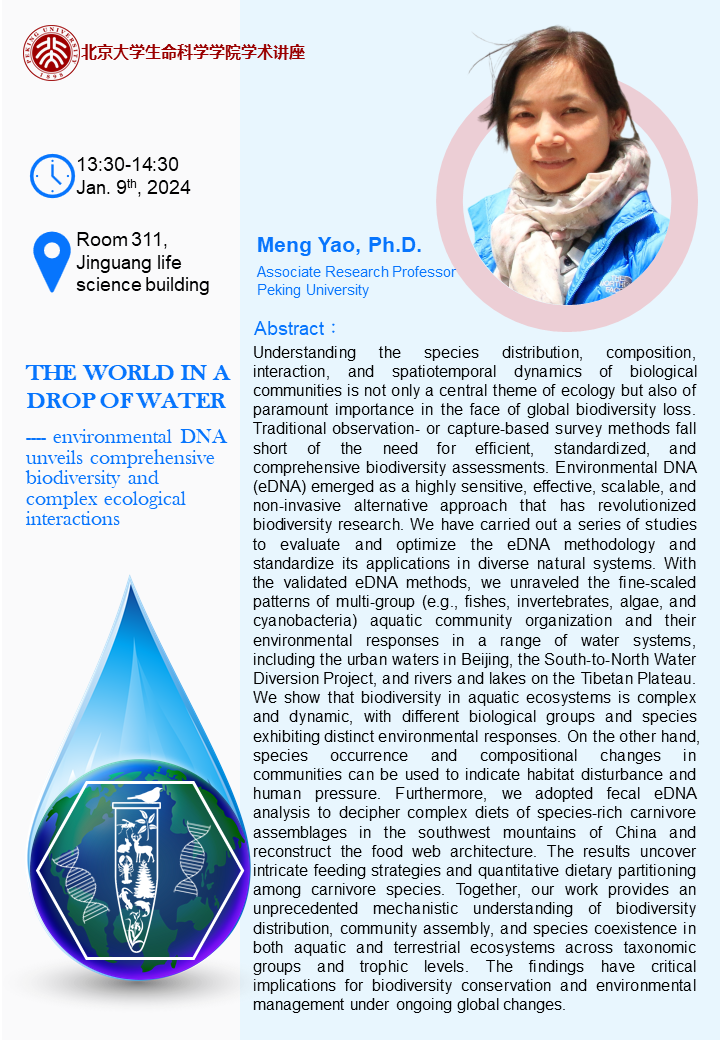
Speaker: Meng Yao, Ph.D., Associate Research Professor, Peking University
Time: 13:30-14:30 p.m., January 9, 2024, GMT+8
Venue: Room 311, Jingguang Life Science Building, PKU
Abstract:
Understanding the species distribution, composition, interaction, and spatiotemporal dynamics of biological communities is not only a central theme of ecology but also of paramount importance in the face of global biodiversity loss. Traditional observation- or capture-based survey methods fall short of the need for efficient, standardized, and comprehensive biodiversity assessments. Environmental DNA (eDNA) emerged as a highly sensitive, effective, scalable, and non-invasive alternative approach that has revolutionized biodiversity research. We have carried out a series of studies to evaluate and optimize the eDNA methodology and standardize its applications in diverse natural systems. With the validated eDNA methods, we unraveled the fine-scaled patterns of multi-group (e.g., fishes, invertebrates, algae, and cyanobacteria) aquatic community organization and their environmental responses in a range of water systems, including the urban waters in Beijing, the South-to-North Water Diversion Project, and rivers and lakes on the Tibetan Plateau. We show that biodiversity in aquatic ecosystems is complex and dynamic, with different biological groups and species exhibiting distinct environmental responses. On the other hand, species occurrence and compositional changes in communities can be used to indicate habitat disturbance and human pressure. Furthermore, we adopted fecal eDNA analysis to decipher complex diets of species-rich carnivore assemblages in the southwest mountains of China and reconstruct the food web architecture. The results uncover intricate feeding strategies and quantitative dietary partitioning among carnivore species. Together, our work provides an unprecedented mechanistic understanding of biodiversity distribution, community assembly, and species coexistence in both aquatic and terrestrial ecosystems across taxonomic groups and trophic levels. The findings have critical implications for biodiversity conservation and environmental management under ongoing global changes.
Source: School of Life Sciences, PKU
